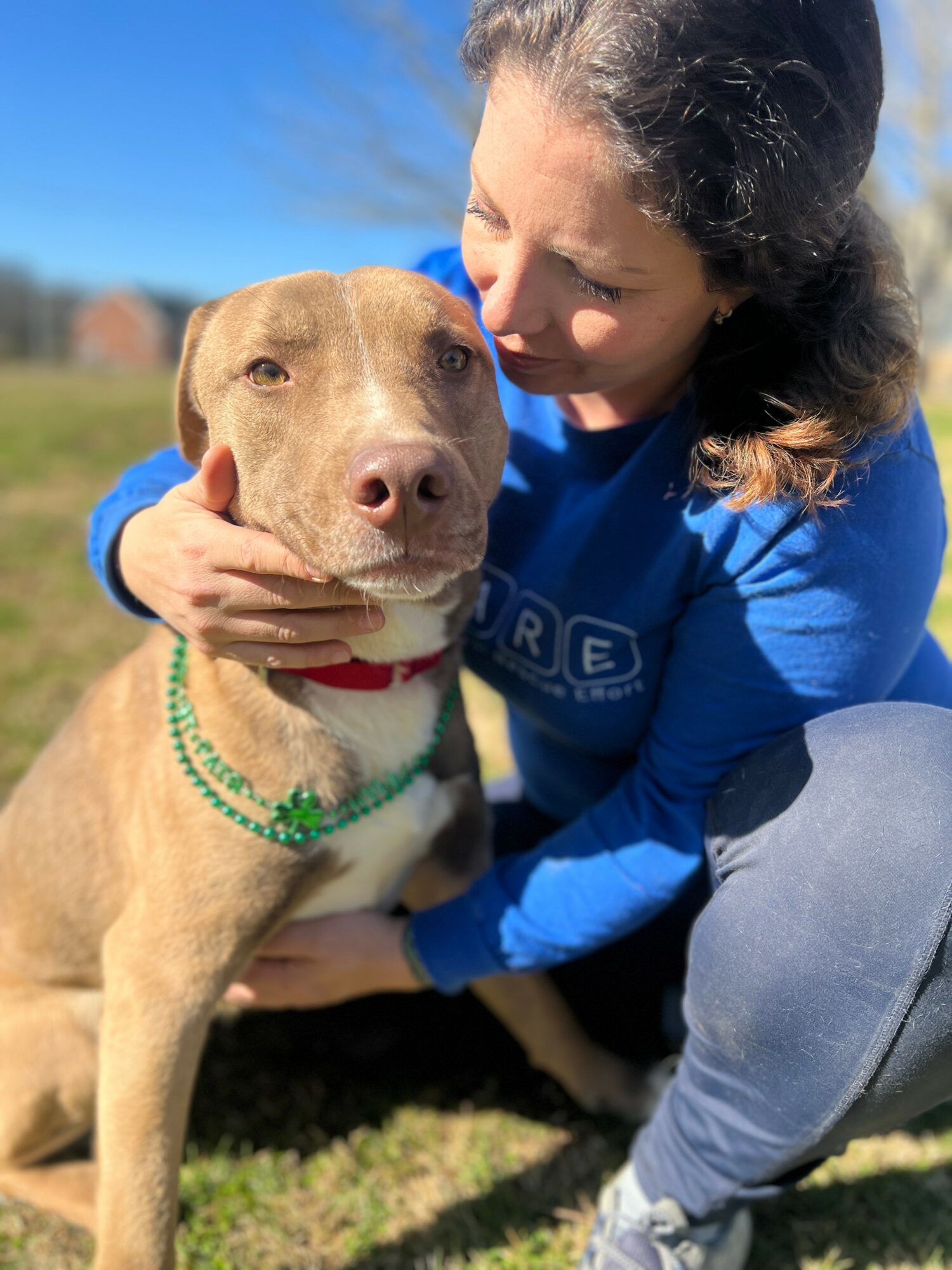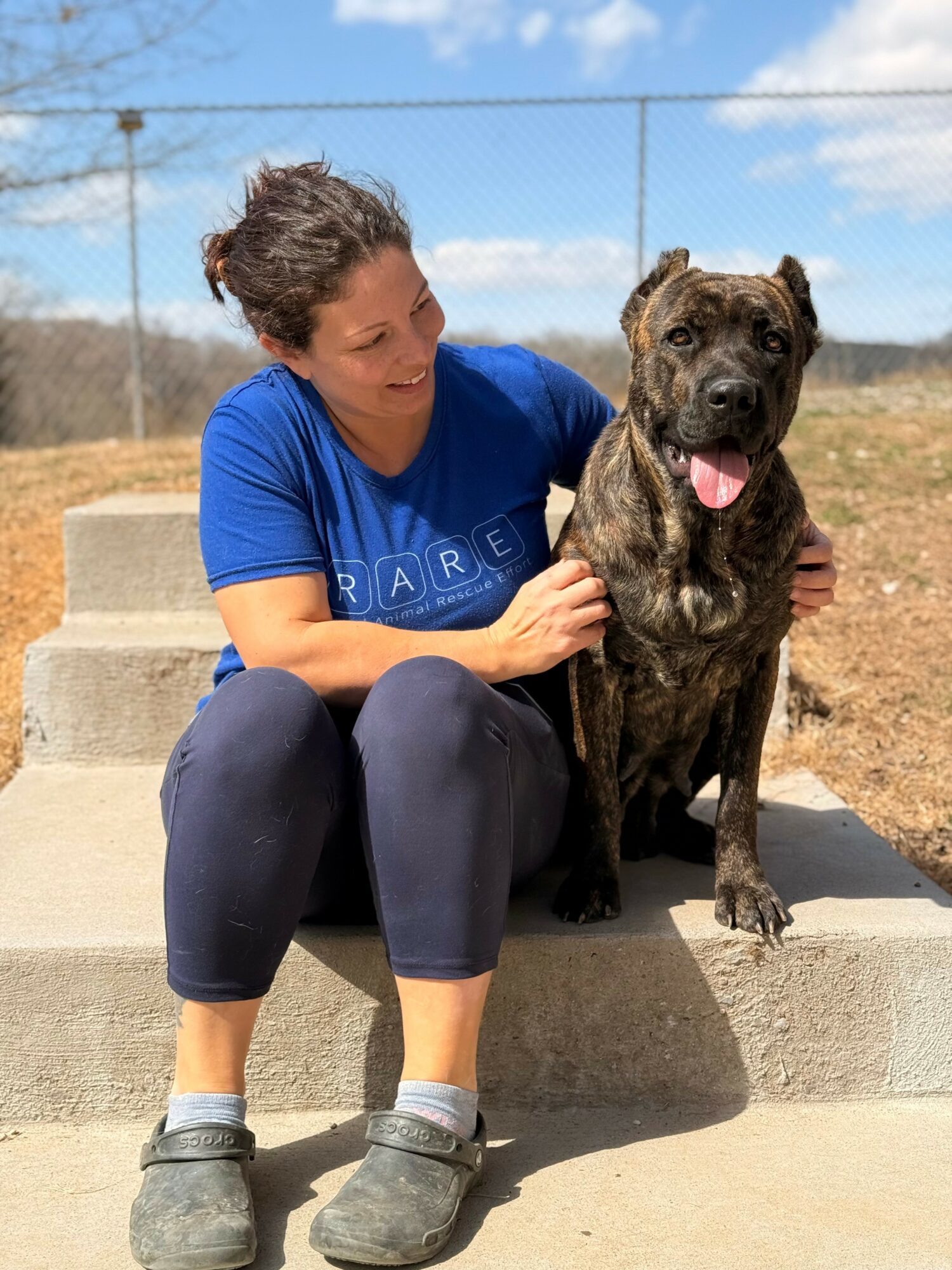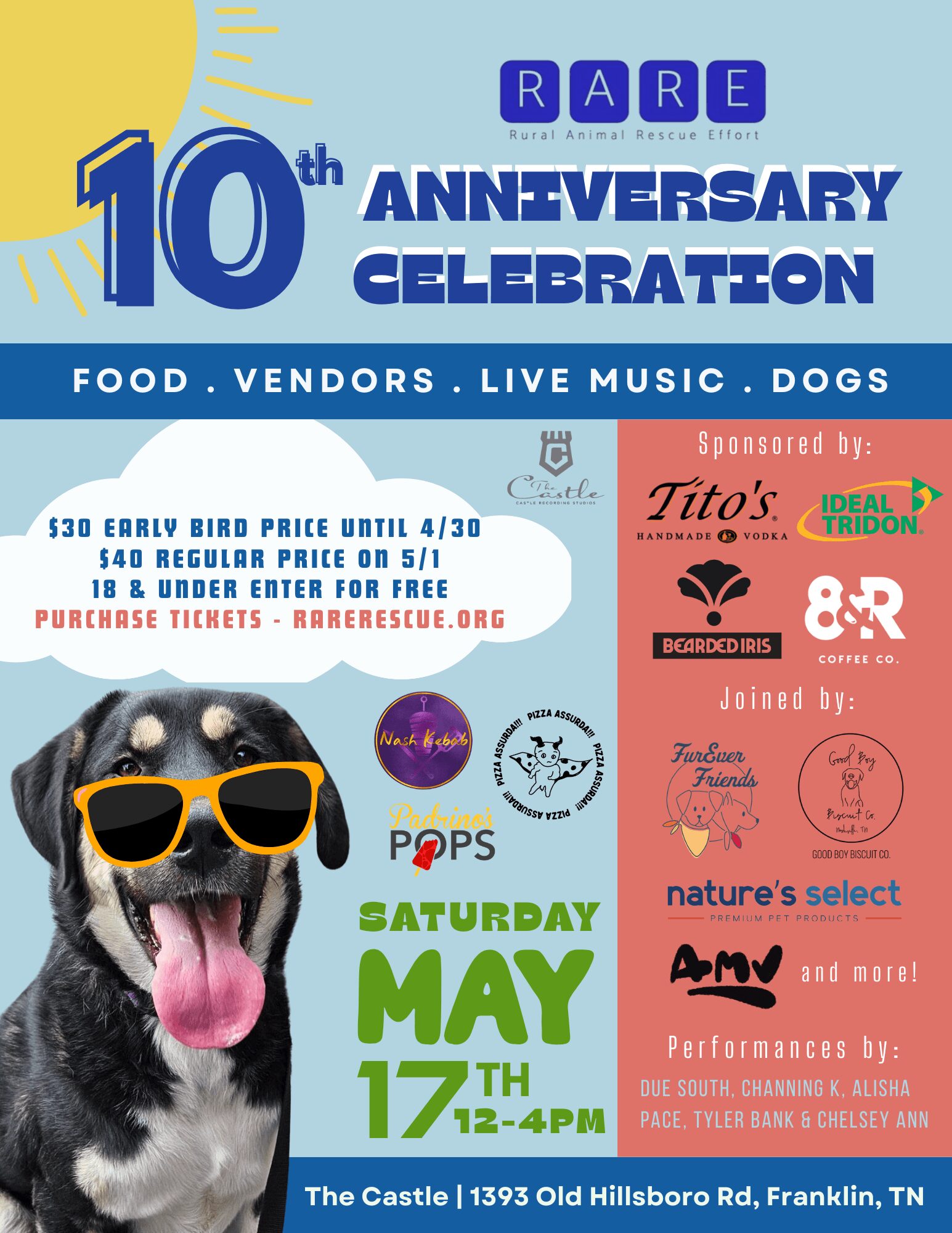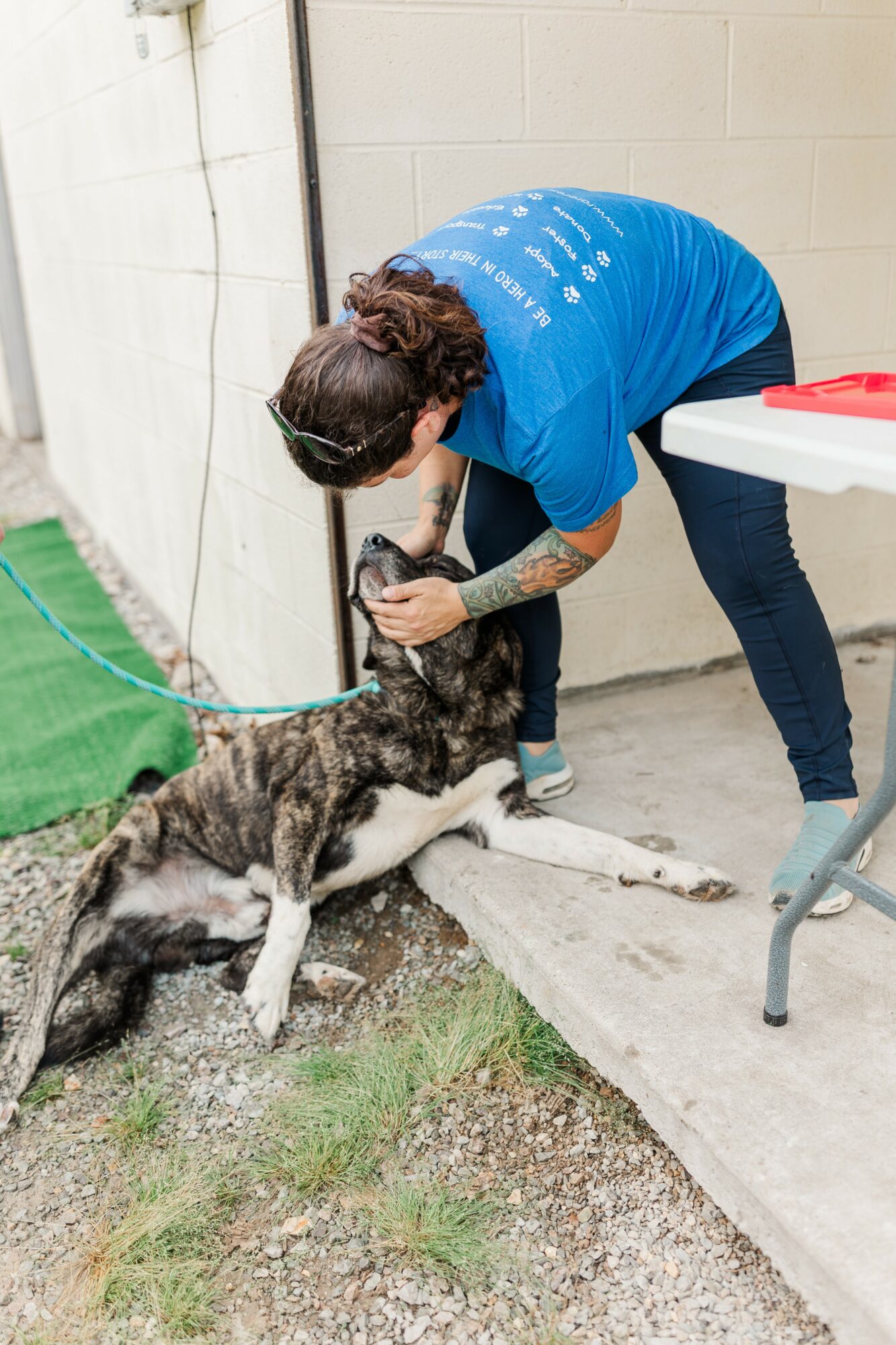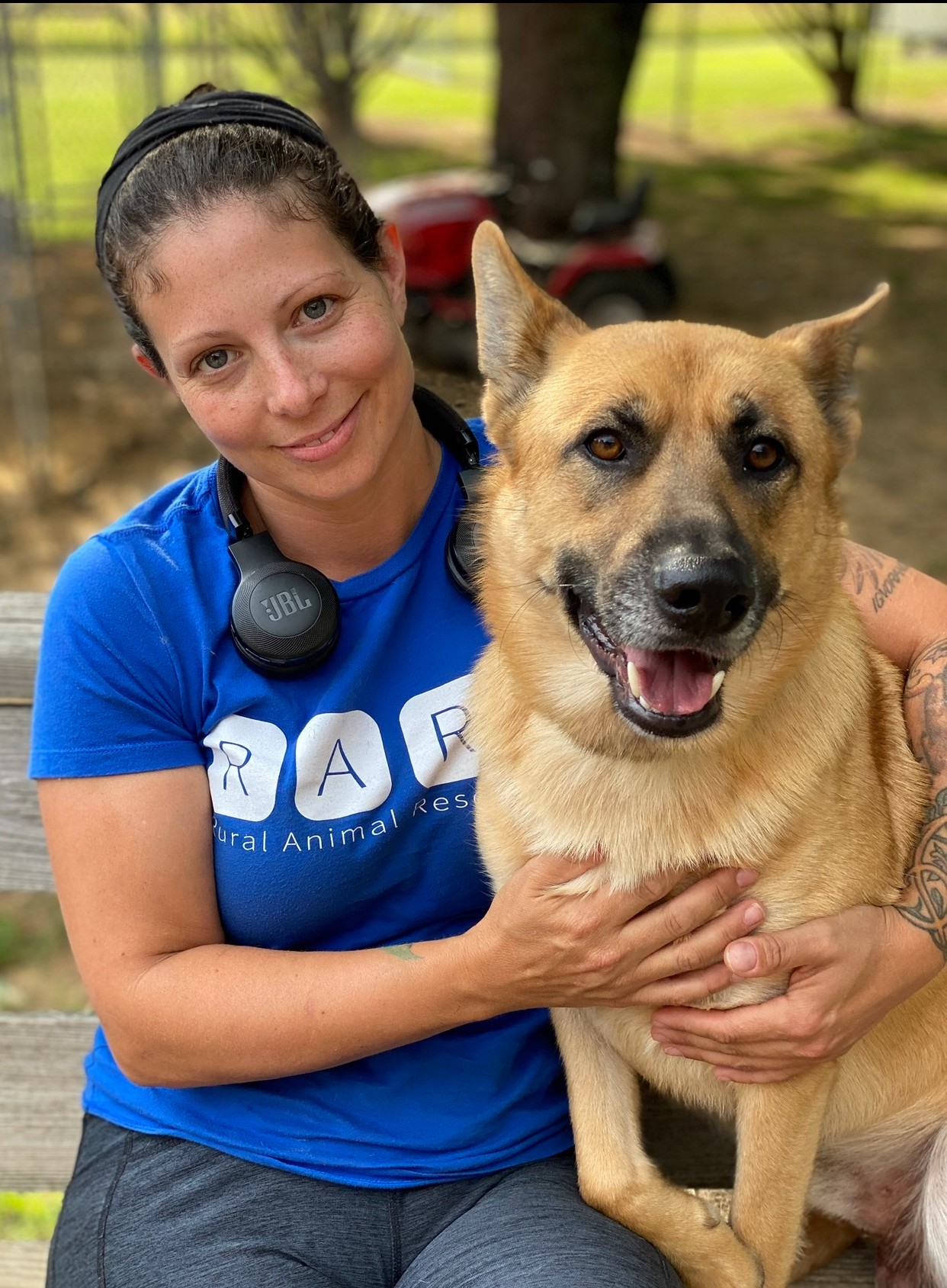

Today we’d like to introduce you to Trisha Crowley.
Hi Trisha, please kick things off for us with an introduction to yourself and your story.
I’m originally from Buffalo, New York. In 1998, when I was 18, I visited the local SPCA hoping to adopt a kitten. At the time, I was going through a difficult period in my life. I had spent several years struggling with family issues, depression, and falling in with the wrong crowd, which led me down a path of drugs and alcohol. I nearly dropped out of high school my junior year, but I pushed through—doubling up on classes my senior year to graduate. I was attending community college, still unsure of what career path I wanted to follow, though my lifelong love for animals had always made me dream of becoming a veterinarian. My parents had allowed me to adopt a kitten when I was seven, but despite my pleas, they never let me have a dog.
Back at the SPCA, there were no kittens available that day. While filling out pre-approval paperwork for a future adoption, I saw a puppy that had just been returned to his kennel. The person meeting with him decided he would grow too large. Curious, I walked to the back and saw him—curled up, frightened, and cowering amidst the noise of barking puppies. In that moment, I knew he was meant to leave with me. I named him Titan. He was a handful—like most puppies—but he changed my life. Titan gave me a sense of purpose, and he was the reason I began working in animal rescue.
That spark led me to begin interning and working at veterinary clinics, volunteering at the local SPCA, and helping local dog rescues while continuing my education. I had planned to pursue veterinary school, but over time, I came to a difficult realization: veterinary medicine is a business, and the financial limitations of pet owners often meant animals were left to suffer or be euthanized when care wasn’t affordable. That truth was heartbreaking. I wanted to help animals in a way that wasn’t restricted by profit. So, I shifted my academic focus to business with the goal of eventually running a nonprofit animal rescue.
I earned my Accounting degree from the University at Buffalo and later completed my MBA at Niagara University. But no matter what I studied, my heart remained with animals. In 2010, I became Vice President of a local dog rescue that focused on saving dogs—especially pit bull-type breeds—from overcrowded shelters in the South. One of the shelters we worked with was Red Fern Animal Shelter in Dresden, Tennessee. Though they’ve since stopped intake, they continue to care for the many animals they once rescued. I formed a special bond with the two sisters who ran that shelter. At the time, Red Fern was entirely outdoors, with 147 dogs and over 100 cats.
The logistical challenges of long-distance transports and not being able to personally assess the animals—or take quality photos—prompted me to visit in 2012. During that trip, I felt an undeniable pull to be there. I wanted to make a greater impact, so in April 2014, I packed up my five large dogs and two rabbits and drove 12 hours in a small SUV to Tennessee. For the first few months, we lived in the basement of the shelter property while I looked for a home to rent.
I was immediately struck by the culture shock and overwhelmed by the sheer scale of the animal welfare crisis in rural Tennessee. It was common to see dogs and cats roaming freely, breeding unchecked, and being given away in parking lots. Spay/neuter services were rare and often considered a luxury. Sadly, that remains true in many areas.
The first dogs I rescued were Chance and Blanca. Both were emaciated and used for backyard breeding to support a drug habit. Chance was chained to a light pole with only the top of a doghouse for shelter, while Blanca was tethered to a collapsing doghouse. They were fed sporadically—sometimes only every other day—and their only source of water was a hubcap that was rarely filled and easily knocked over. It took time and effort, but I eventually convinced their owners to surrender them to me.
It became clear that the problem was far larger than I had imagined. I knew that to build a bridge between these rural communities and the loving, responsible homes these animals deserved, I needed to be closer to a metropolitan area with more resources and established rescue partners. So, I moved to Columbia—just south of Nashville—and in May 2015, I founded RARE (Rural Animal Rescue Effort) as a 501(c)(3) nonprofit.
Since our inception, RARE has saved 7,180 animals as of May 2025. And we’re just getting started
Can you talk to us a bit about the challenges and lessons you’ve learned along the way. Looking back would you say it’s been easy or smooth in retrospect?
The journey to founding and sustaining a nonprofit like RARE has been anything but easy. Starting a 501(c)(3) organization requires significant paperwork, legal hurdles, and upfront costs just to become established—let alone the ongoing expenses and requirements needed to remain in good standing. It also means forming a board of directors, recruiting passionate volunteers, and building a trustworthy team who believes in your mission. I’m incredibly proud of the dedicated team we’ve built over the years—but the work is never done, and we are always in need of more hands, more hearts, and more support.
Our focus on rural areas—many of which are low-income and steeped in outdated mentalities—adds another layer of challenge. In these communities, animals are often viewed as property. Dogs and cats are left to roam, breed uncontrollably, suffer injuries, or end up in underfunded rural pounds that still practice inhumane methods of euthanasia. Despite years of outreach, education, and advocacy—including meetings with local mayors and sheriffs, sharing data, and pleading for change—many of these areas still lack spay/neuter laws and basic protections for animals. And even where minimal laws exist, enforcement is inconsistent at best.
But giving up has never been an option.
We’ve learned that real change comes through collaboration—by working closely with other rescue groups, animal welfare advocates, and reform-minded organizations. Still, the emotional toll of this work is heavy. Compassion fatigue is real. It’s taken me years to accept that I must take care of myself in order to continue caring for others. The need is constant and overwhelming—like trying to empty the ocean with a spoon—and it’s easy to feel defeated. But I’ve learned to find moments to rest and reset, knowing the fight is long and ongoing.
Rescue work isn’t just about saving animals. It means working with families in crisis, navigating cruelty and hoarding cases, collaborating with law enforcement and local governments, managing a team of staff and volunteers, providing daily care for animals, mentoring fosters, and making countless hours of veterinary runs and adoption transports. Behind the scenes, there’s an equally relentless administrative load: grant writing, processing applications, responding to calls and emails, and running our RARE FIX spay/neuter voucher program.
We are inundated every day with requests to take in animals—and the truth is, donations rarely keep pace with demand. We’re constantly fighting to stretch limited resources. What we urgently need now is an adoption center with dedicated space for intake, vetting, and community outreach. But with rising costs for land and construction, we estimate needing at least $1.5 million to get started.
Despite it all, we remain committed. Because every life matters. Because change doesn’t happen overnight. And because compassion, backed by action, is the only way forward.
As you know, we’re big fans of you and your work. For our readers who might not be as familiar what can you tell them about what you do?
What Sets RARE Apart
With over 22 years of experience in animal welfare and hands-on work in veterinary clinics, I bring a deep and practical understanding of both animal care and nonprofit management. My background as a veterinary technician and animal handler allows me to perform a wide range of critical procedures in-house, including administering vaccines, subcutaneous fluids, heartworm tests, fecal exams, and other basic diagnostics. This skill set saves our organization thousands of dollars annually and ensures timely, high-quality care for every animal we rescue.
Additionally, I have built strong relationships with veterinary clinics across the various regions we serve. These partnerships allow us to maximize our resources and secure affordable care—even if it means personally driving over an hour each way to reach the right clinic. Efficiency in veterinary spending means more lives saved.
One of the aspects I’m most proud of is our personalized, responsible adoption process. Every RARE adoption includes a 30-day trial period to ensure the best possible fit between adopter and animal. During this time, I remain available to help with training and integration, offering a level of support that most organizations cannot provide. Furthermore, I conduct all adoption meet-and-greets at the adopter’s home. This ensures the safety and well-being of our animals, allows for proper introductions with existing pets, and helps us confirm that the home environment is suitable.
We specialize in saving animals from under-resourced, high-risk rural environments, with an emphasis on long-term, sustainable placement—not just rescue. Matching the right animal with the right home is a responsibility we take very seriously.
This work isn’t just a job or a passion project—it’s my entire life. Every decision is guided by the belief that animals deserve safety, respect, and a second chance, no matter where they come from. And through RARE, I’m proud to lead a team that’s making that vision a reality every single day.
Let’s talk about our city – what do you love? What do you not love?
Although our rescue efforts primarily focus on rural communities—often more than an hour outside the city—our adopters and foster families are largely based in Nashville and the greater Nashville area. And for good reason: Nashville is a dog- and cat-loving city that embraces companion animals as part of the family. The city offers a wide range of pet-friendly places to eat, drink, and relax, making it easy for people to enjoy time with their dogs. Many apartment complexes and rental properties welcome pets, so it’s not surprising that most residents have at least one dog or cat.
What I love most about Nashville is its heart. The community has a strong base of animal lovers, and there are countless opportunities to make a difference—whether through volunteering, fostering, or supporting local rescues. There are reputable and affordable trainers available to help with behavior issues, and low-cost clinics offering spay/neuter surgeries, vaccines, and microchipping services to promote responsible pet guardianship.
Unfortunately, like every major city, Nashville still has its challenges. Far too many pets are not spayed or neutered, contributing to an out-of-control overpopulation crisis that is now worse than I’ve ever seen. Every day, thousands of animals are being surrendered to local shelters and rescues. It’s heartbreaking—and preventable.
Nashville is a great city, but we can do better. We have the resources, the knowledge, and the community support to turn the tide. It starts with awareness, education, and compassion. And I believe, with continued collaboration and advocacy, real change is not only possible—it’s within reach.
Contact Info:
- Website: https://www.rarerescue.org/
- Instagram: https://www.instagram.com/rarerescue/
- Facebook: https://www.facebook.com/rarerescuetn
- Youtube: https://www.youtube.com/@rarerescue
- Other: https://www.tiktok.com/@rarerescue
